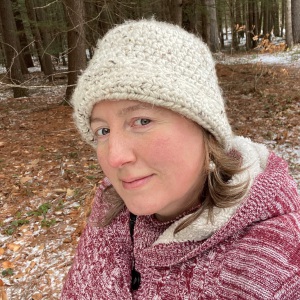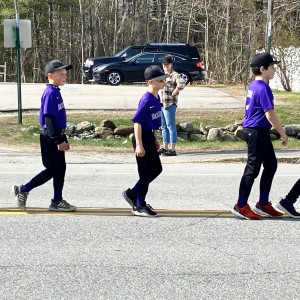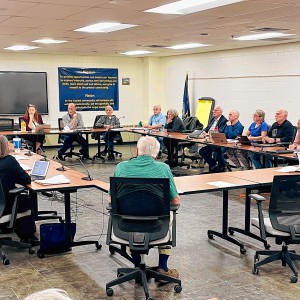Francestown Community Power Committee will be sending survey to residents
| Published: 09-20-2023 11:56 AM |
Ari Levine, the head of the town’s Community Power Committee (CPC), emphasized the importance of community participation in an upcoming survey during a presentation to the Francestown Select Board Monday.
The Community Power Committee was formed in early August, and the members have met “three or four times” at this point, according to Levine. The committee is working toward presenting a Town Meeting warrant article and an Electric Assistance Program (EAP) in March. Pending approval, the CPC will be officially formed and the town will then present the EAP to the state Public Utilities Commission (PUC). After PUC approval, the committee will then move forward in making a recommendation of an electricity service provider.
Community power allows groups, including towns, to pool their buying power to negotiate for better power costs. Eversource negotiates power prices at two set times each year, but the community power model allows groups to lock in prices when they are down. Community power plans also often offer options for greater amounts of energy to be provided from renewable sources.
The committee is preparing to send a survey to all Francestown residents in the first week of October, according to Levine. It was originally scheduled to be sent in the upcoming week, but due to the George H. Bixby Memorial Library sending mailers at that same time, the CPC decided to wait. The objective of the survey is primarily to gauge the climate of the town in relation to community power.
Levine said the objective of the survey is to “find out what people think is most important about electricity service in general, as well as the idea of community power.” The committee is planning to hold public meetings in November and December with prospective providers to, according to Levine, “answer our questions.” There have been no specified dates for these meetings, but they are planned to be held in the town offices unless need for seating is greater, in which case they will be held in the Town Hall.
The survey will be four questions and will also explain the concept of community power. There will be options to either take the physical survey or do so online. The questions will be centered around how satisfied the respondent is with their current electricity service provider, if the respondent would support an initiative to secure better rates and more local control of energy choices and what is valued in selecting an electricity provider.
Levine emphasized that the EAP and warrant article are largely contingent on the responses to the survey, and that the goal for response is around 20%. He stated that the average response rate for these types of surveys is closer to 5 to 10%. The importance of these responses in drafting the warrant article and EAP are “why we (the CPC) want to see more answers come back,” according to Levine.
The warrant article will be written largely based the feedback voiced in the survey and public meetings, Levine said. The model for the CPC warrant article and EAP will also follow the example of the towns that have already received PUC approval.
Article continues after...
Yesterday's Most Read Articles
 Peterborough voters approve funds for fire and rescue station
Peterborough voters approve funds for fire and rescue station
 HOMETOWN HEROES – Rose Novotny is motivated by community
HOMETOWN HEROES – Rose Novotny is motivated by community
 Mt. Monadnock Little League celebrates opening day
Mt. Monadnock Little League celebrates opening day
 ConVal committee begins to study withdrawal process
ConVal committee begins to study withdrawal process
 Mascenic custodian named statewide 'Champion for Children'
Mascenic custodian named statewide 'Champion for Children'
 L. Phillips Runyon III – Personal freedom and the common good
L. Phillips Runyon III – Personal freedom and the common good
“We are modeling very consciously both the warrant article and the EAP after the 20 or so municipalities that have already gone through the process,” said Levine. “[There is] no reason to reinvent the wheel, no reason to incur the possibility of potential PUC objections.”
Levine went on to state that the example of Walpole’s model has been followed closely, as has been the case with other towns. At the conclusion of the update, Board Chair Scot Heath stated the process was “exactly how it should be.”
“So many problems can be avoided by good communication,” said Heath. “So this is great.”






 Zoning proposal fails
Zoning proposal fails Vehicle rolls over on Route 31 in Greenfield
Vehicle rolls over on Route 31 in Greenfield PHOTOS: Peterborough hosts Children and the Arts celebration
PHOTOS: Peterborough hosts Children and the Arts celebration Superintendent Kimberly Rizzo Saunders leaving ConVal School District
Superintendent Kimberly Rizzo Saunders leaving ConVal School District
